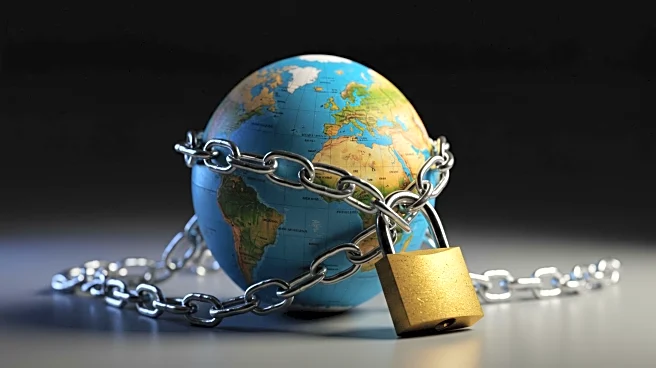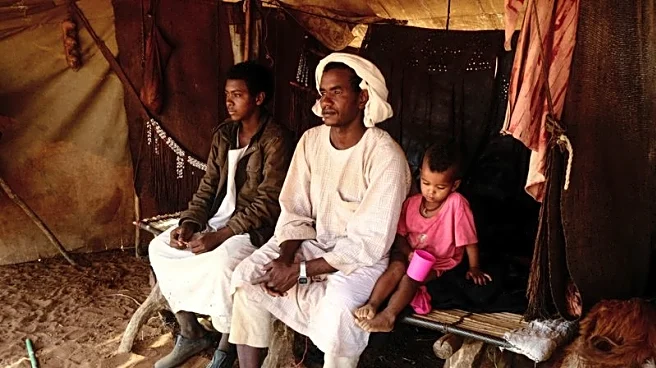What's Happening?
Israel has introduced new registration rules for international non-governmental organizations (INGOs) operating in Gaza, which have been criticized for potentially weaponizing aid. These rules allow for the denial of registration based on vague criteria, such as alleged delegitimization of Israel. Aid groups argue that these measures are designed to control independent organizations and silence advocacy, hindering the delivery of humanitarian assistance. The restrictions have left millions of dollars' worth of food, medicine, and shelter items stranded, exacerbating the humanitarian crisis in Gaza. The Dutch Data Protection Authority has warned that Israel's information requests under these rules risk violating the General Data Protection Regulation (GDPR).
Why It's Important?
The new registration rules could significantly impact the ability of INGOs to operate in Gaza, potentially worsening the humanitarian situation. By controlling aid distribution, Israel may be able to exert more influence over the region, affecting the lives of Palestinians who rely on international aid for survival. The restrictions could lead to a decrease in the availability of essential supplies, increasing the risk of famine and preventable illnesses. The situation also raises concerns about data privacy and the safety of aid workers, as INGOs are pressured to share sensitive information with Israeli authorities.
What's Next?
If INGOs do not comply with the registration requirements, they may be forced to halt operations in Gaza and the West Bank, including East Jerusalem. This could lead to a further deterioration of the humanitarian situation. Aid organizations and international bodies are likely to continue advocating for the removal of these restrictions and the opening of borders to allow the delivery of lifesaving supplies. The international community may increase pressure on Israel to amend its requirements and ensure the safe and independent operation of humanitarian organizations.
Beyond the Headlines
The situation in Gaza highlights the complex interplay between humanitarian aid and political agendas. The use of aid as a tool for control raises ethical questions about the responsibilities of donor countries and organizations in conflict zones. The long-term implications could include a shift in how aid is distributed and monitored in politically sensitive areas, potentially affecting global humanitarian policies.










